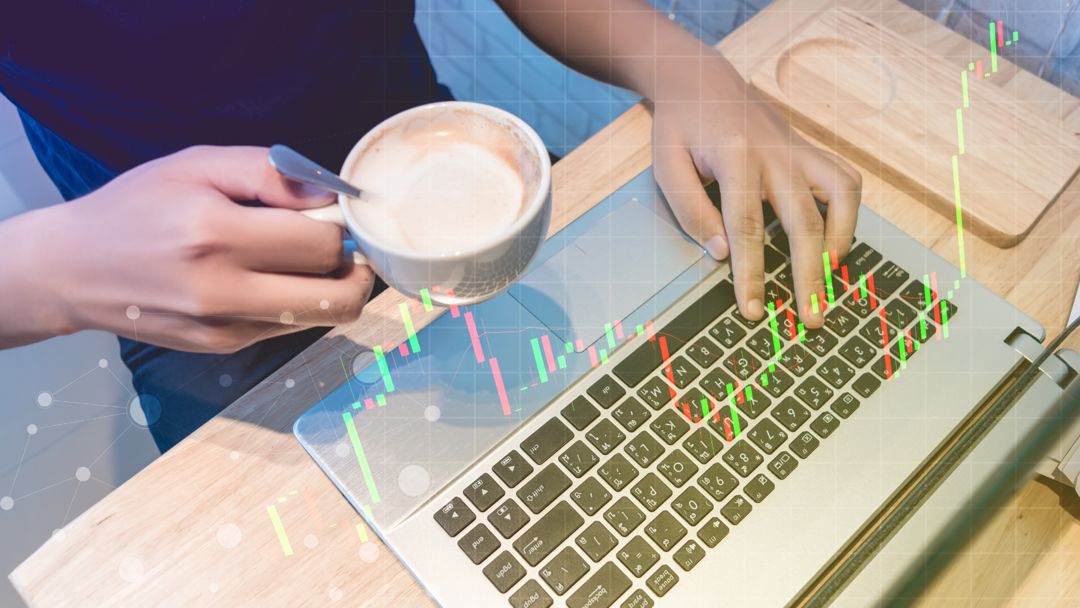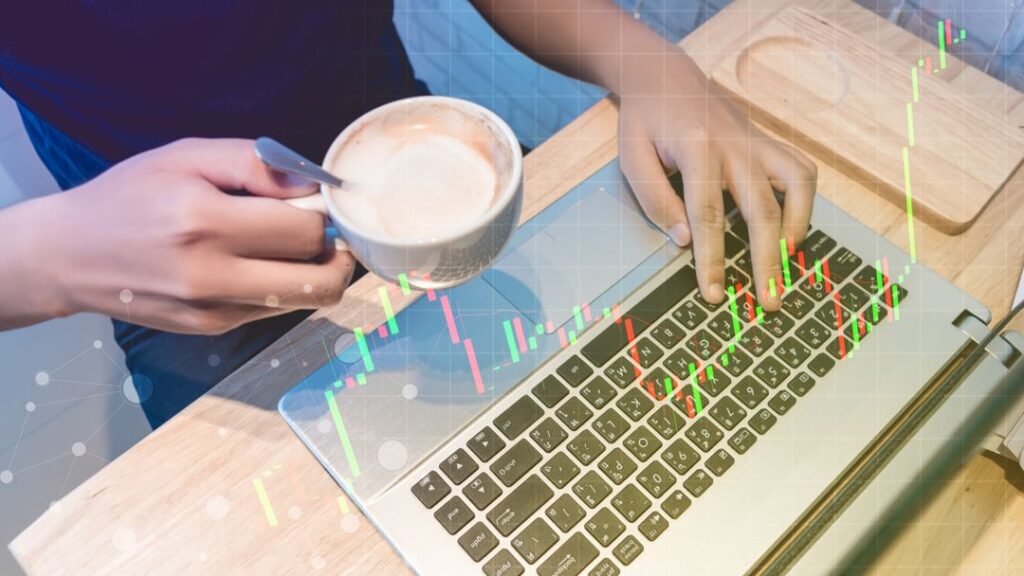Trading vs Investing
Which Is Right For You?
Many people are interested in investing, but others enjoy the thrill of trading currencies to make more money on their investments over time. Which should you choose? As with most things, it depends on your goals and what you’re looking to accomplish. Investing requires a long-term approach to the markets and often applies to such purposes as retirement accounts. Short-term techniques are used in forex trading to optimize returns daily, monthly, or quarterly. Here are some guidelines that can help you decide which approach will work best for you. Learn what may lie ahead if you choose one path or the other.
Types of traders
Fundamental traders analyze economic trends and news to determine when, where, and why to buy and sell. Although trading currencies on fundamental information is not a get-rich-quick approach, it does often lead to above-average results. Technical traders are individuals who trade forex by analyzing market data like price movements and technical indicators. In some ways, technical analysis can be seen as a more complicated version of fundamentals. They do tend to yield quicker profits but also carry higher risks. If you have time and patience, then forex trading may be a good option for you. If you’re looking to make quick profits, then a short-term trading strategy may be worth trying. Either way, it’s important to know that not all traders are created equal; some individuals are better suited than others depending on their temperament and risk tolerance levels.
The Benefits of Investing
For most of us, investing for retirement is a musat. Especially as we are living longer and will be reliant on our investments to last decades into our lives. Even if you’re still many years away from your goal, it’s never too early to start thinking about how your portfolio will be structured. How you’ll allocate your funds. Investing in equities may be a great long-term strategy that provides steady returns and outperforms inflation over time. However, do note that when it comes to investing there are many options available such as currency trading, stocks, bonds, funds, and ETFs (exchange-traded funds). Furthermore, experts recommend a diversified approach to help balance out risk while still earning solid returns.
The Benefits of Trading
The potential for growth in a short period of time is what attracts many investors to forex trading. In today’s modern world, technology has accelerated financial markets. To a point where you can have an extremely lucrative month with only a few thousand dollars and great risk-adjusted returns in even just one day. The key is finding those opportunities, recognizing them when they present themselves. Then having some experience to be able to know how much to risk. How quickly you need to move on that trade. Because of these potential huge gains (but also losses), it makes sense that traders are drawn more towards binary options trading rather than traditional securities trading.
What do You need To Start Investing or trading?
First, you need to figure out what your investment goals are and how much risk you’re willing to take on to meet them. Risk appetite refers to an investor’s tolerance for taking risks in pursuit of higher returns and should be considered before investing capital in securities, especially since investors can control only some of their risks and cannot do so when it comes to market risk (the chance that markets will decline over time). The first step toward controlling your investment risks is defining your long-term goal—are you saving up for a vacation or college tuition? Are you investing to retire early or build assets that will provide regular income during retirement?
How To Start Investing
If your goal is long-term investing (such as retirement), you might want to look into exchange-traded funds (ETFs) as a way to diversify your portfolio. Have access to professionally managed securities at a lower cost than actively-managed mutual funds. To begin, research various ETFs in different sectors of interest. Also, think about what market conditions you want exposure to (high growth, global equity). Then, find a low-cost brokerage that charges no commission fees or minimum deposit requirements. Invest accordingly your goal is long-term investing (such as retirement). You might want to look into Exchange Traded Funds (ETFs) as a way to diversify your portfolio. Have access to professionally managed securities at a lower cost than actively-managed mutual funds.
Risk in high return Trading
High risk, high return. Because trading and investing are so different, they require two very different approaches to planning. While investing tends to be a slow-and-steady game that seeks to turn your money into more money in a relatively long time frame, trading tends to be about hitting it big (or bust) in a relatively short period of time. With trading—specifically forex trading—it’s not uncommon for people to set out with five grand as their goal and then turn that into five hundred thousand within months.
What to Know Before Starting to Trade Currencies?
Trading stocks, bonds, or any other financial instrument involves taking on high risk and potentially high return. If you’re just starting out as a trader, make sure to educate yourself on all of these factors. Thats before plunging it in. It might seem attractive to make huge gains by trading forex. However, be aware that it’s just as easy to lose your initial investment. If you take your time researching trading strategies and manage your risk carefully, you might be able to find some success. Trading currencies comes with high risks and rewards. There may be other factors that can affect your performance. However, if you’re trading forex currencies such as euros or yen, volatility plays a larger role in determining which currency to use in a trade. This is important to keep in mind as it can ultimately lead to larger losses or gains than expected when first starting out trading.
Trading Margin
When you’re trading on margin, you may owe more than what you invested. If your account goes into debt by 2 percent of your investment amount ($2,000) or more after each day’s trading activities, some brokerages will automatically liquidate one of your positions to raise funds to pay down that debt.
All investments involve some degree of risk. If you intend to purchase securities – such as currencies, commodities, stocks, bonds, or mutual funds – it’s important that you understand before you invest that you could lose some or all of your money..
To learn more about FOREX TRADING and many more visit our website at: https://smartradeph.com/
Like our social media pages to see schedules for our free online training/seminars and one on one coaching.
Facebook: https://www.facebook.com/smartradeph/
Instagram: https://www.instagram.com/smartradeph/
Linkedin: https://www.linkedin.com/company/smartrade-philippines/
Twitter: https://twitter.com/smartradeph
Youtube: https://www.youtube.com/c/SmarTradePH
Tiktok: https://www.tiktok.com/tag/smartrade


